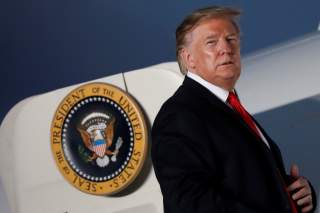Trump's New Policy Problem: Congress Wants to Pump More Funding into the United Nations
This state and foreign operations bill could inappropriately tie the hands of the administration and create confusion.
As with the Human Rights Council language, this reverse the proper burden of responsibility. International organizations are not entitled to U.S. funding—they must demonstrate that they are worthy of that funding. UNRWA’s problems are long-standing and well established, and the organization has proven resistant to U.S. demands for reform even when American taxpayer dollars comprised its largest source of funding. Instead of demanding reforms from UNRWA, the House bill provides funding by default. In addition, the House bill would restore over $200 million in U.S. bilateral and multilateral assistance to Gaza and the West Bank despite Palestinian intransigence on peace negotiations with Israel.
The U.S. system of government is comprised of coequal branches, but there is a reason why the foreign-policy responsibilities reside primarily in the Executive branch. These provisions—and a number of others in the bill—would inappropriately tie the hands and flexibility of the administration to conduct foreign policy and create conflict and confusion in our dealing on these matters in the future. Conservatives in the House should seek to remove these provisions and Senate conservatives should endeavor to prevent similar language in the Senate appropriations bill.
Brett D. Schaefer is the Jay Kingham Senior Research Fellow in international regulatory affairs for the Margaret Thatcher Center for Freedom at The Heritage Foundation (heritage.org).

